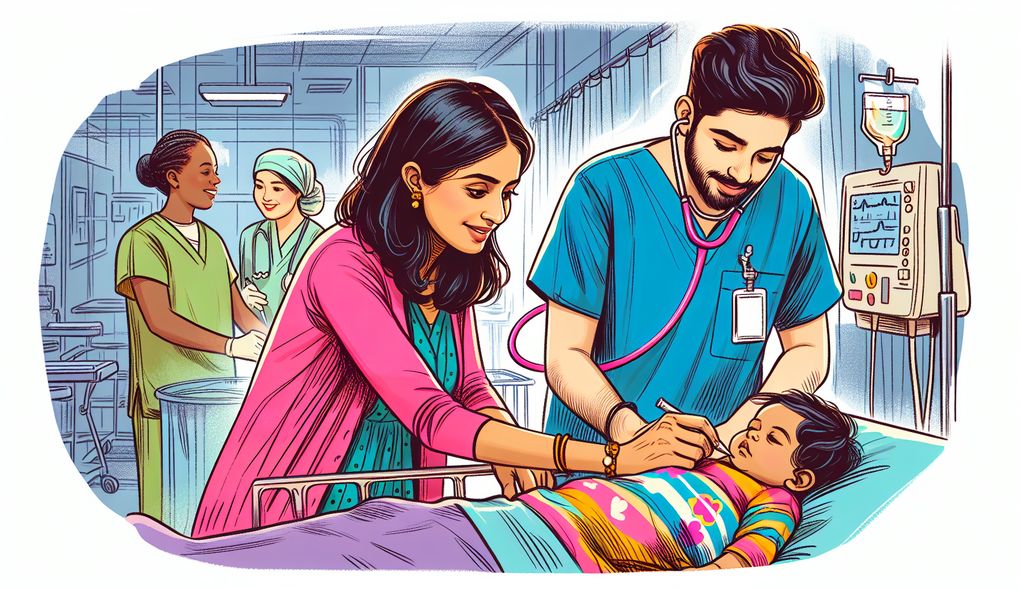How do you prioritize patient care in a high-stress environment?
JUNIOR LEVEL

Sample answer to the question:
In a high-stress environment, prioritizing patient care requires a combination of effective time management, communication, and clinical decision-making skills. I ensure that I have a clear understanding of the patients' condition and needs by reviewing their medical records and consulting with the multidisciplinary team. I prioritize tasks based on their urgency and impact on patient outcomes. For example, if a patient requires immediate intervention, I will prioritize their care over other tasks. I also communicate effectively with the team to delegate responsibilities and coordinate care efficiently. Additionally, I make quick and informed decisions under pressure by relying on my clinical expertise and evidence-based guidelines. Continuous communication with the patient and their family helps me address their concerns and provide emotional support during their time of need.
Here is a more solid answer:
In a high-stress environment, prioritizing patient care is crucial for delivering optimal outcomes. I have developed a systematic approach to ensure comprehensive care while managing the demands of a busy pediatric intensive care unit (PICU). Firstly, I triage patients based on the severity of their condition, ensuring that those requiring immediate intervention receive prompt care. I utilize my strong clinical skills and experience in pediatric medicine to make quick and informed decisions under pressure, always prioritizing patient safety and well-being. Effective communication and collaboration with the multidisciplinary team are essential for coordination and efficient delivery of care. I proactively engage in interdisciplinary rounds, discussing patient progress and treatment plans to ensure everyone is on the same page. Additionally, I actively involve the patient and their family in decision-making, providing education and emotional support. Empathy and compassion are at the core of my practice, as I understand the importance of addressing the emotional and psychological needs of both the patient and their loved ones. By prioritizing patient care in a high-stress environment, I aim to provide the best possible outcomes for the children and families under my care.
Why is this a more solid answer?
The solid answer expands on the basic answer by providing more specific examples of how the candidate prioritizes patient care in a high-stress environment. The candidate discusses their systematic approach, including triaging patients, utilizing clinical skills, and effective communication with the team. They also highlight the importance of involving the patient and their family and addressing their emotional needs. However, the answer could be further improved by incorporating examples of past experiences.
An example of a exceptional answer:
In a high-stress environment, prioritizing patient care is a complex task that requires a combination of clinical expertise, effective teamwork, and emotional intelligence. In my experience as a Pediatric Critical Care Specialist, I have developed strategies to excel in this challenging environment. Firstly, I prioritize patient safety by ensuring a thorough understanding of their condition through comprehensive assessments, reviewing their medical history, and conferring with the team. To manage the overwhelming workload, I employ effective time management techniques, such as utilizing electronic health records and task prioritization tools. By leveraging my strong clinical skills and keeping up-to-date with evidence-based guidelines, I can make informed decisions swiftly and confidently. Collaboration is paramount in a high-stress environment, and I foster open communication among the healthcare team, actively participating in interdisciplinary discussions and utilizing a team-based approach to care delivery. I understand that patient care goes beyond the physical aspect, and I strive to provide compassionate support to patients and their families. I take the time to actively listen, address their concerns, and involve them in the decision-making process. By consistently improving my emotional intelligence and empathy, I ensure that the patient and their family feel supported and reassured throughout their journey. Overall, my commitment to prioritizing patient care in a high-stress environment stems from my dedication to providing the highest quality of care to the most vulnerable patients.
Why is this an exceptional answer?
The exceptional answer goes above and beyond by incorporating the candidate's experience and specific strategies they have developed to prioritize patient care in a high-stress environment. The candidate discusses the use of electronic health records and task prioritization tools, as well as their commitment to continuous improvement in emotional intelligence and empathy. The answer demonstrates a strong understanding of the job requirements and emphasizes the candidate's dedication to providing high-quality care. It could be further improved by adding more specific examples of past experiences.
How to prepare for this question:
- Familiarize yourself with evidence-based guidelines and current practices in pediatric critical care.
- Reflect on past experiences where you had to prioritize patient care in a high-stress environment and think about the strategies you employed.
- Practice effective communication and collaboration skills, as they are crucial in a high-stress healthcare environment.
- Consider how you can demonstrate empathy and compassion towards patients and their families during stressful times.
- Ask for feedback from peers or mentors on how you can improve your clinical decision-making skills in challenging situations.
What are interviewers evaluating with this question?
- Clinical skills in pediatric medicine
- Ability to make quick decisions under pressure
- Collaboration and communication skills
- Empathy and compassion

